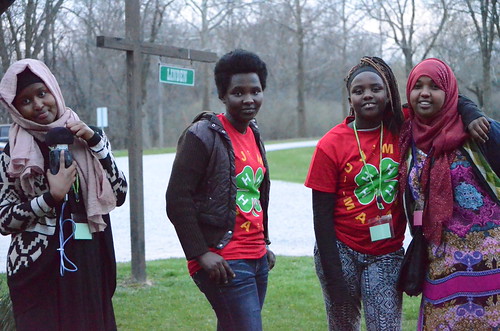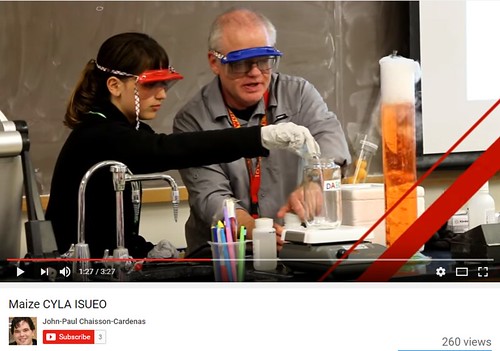
In this guest blog, Iowa State 4-H Youth Development program leader John-Paul Chaisson-Cardenas takes a look at several ways 4-H is embracing the cultural diversity of its participating youth to make sure youth of color feel welcome as the U.S. student population grows more diverse.
By John-Paul Chaisson-Cardenas, Iowa State 4-H Youth Development Program Leader
While the foundational elements of 4-H—experiential learning, positive youth development, et al.—are well-suited for cross-cultural and multicultural contexts, some of the language and traditions of 4-H may not be as culturally relevant to many youth.
In 2014, Iowa 4-H began to intentionally move beyond inclusion to belonging. We expanded on the previous work of our national partner, 4-H National Headquarters, to redevelop programs that reflect the positive cultural knowledge that many of our youth already have. 4-H National Headquarters is part of USDA’s National Institute of Food and Agriculture (NIFA), provides funding and national program leadership to 4-H.
In 2015 we created the first Culturally-based Youth Leadership Accelerator (CYLA). CYLAs are not programs themselves; rather, they are launching pads for underrepresented and underserved youth into local 4-H learning communities. They are designed to use cultural strengths and culturally-based narratives to: introduce and strengthen the relationship between youth of color and local programs; introduce volunteers, staff, and faculty to culturally based leadership development work; and connect underrepresented youth to post-secondary education and resources available to them.
The model was designed so that youth of color are not isolated, but instead, help transform their local 4-H programs with increased cultural relevance and diversity.
One of our CYLA programs, Maize, brought together nearly 100 Latino and Native American youth from across the state. Maize has grown to 160 youth this year.
The name Maize, known in English as corn, is the staple food of most of the indigenous peoples of pre-Columbian North America, Mesoamerica, South America and the Caribbean. Many Mesoamerican and North American Indian legends share that humans were created from maize. A youth retreat in April used the symbolism of corn/maize to represent the coming together of Native American, Latino and other Iowa traditions, aspirations and cultures.
Based on our success with Maize, the Iowa 4-H program created a second retreat in April, called Ujima, which brought together 90 African-American and African immigrant youth. Ujima is the third principle of Kwanzaa and represents collective work and responsibility.
This fall, Iowa 4-H will release online curriculum and training resources so other states may replicate the model. In 2017, we plan to add a third accelerator to serve Asian-American and Pacific Islander youth.
Often it is not about teaching youth something new, but about connecting youth to something ancient – their roots.
NIFA invests in and advances agricultural research, education and extension and seeks to make transformative discoveries that solve societal challenges.

